 Please join me in welcoming a fabulous writing coach and very savvy lady - Valerie Hayward!!
Please join me in welcoming a fabulous writing coach and very savvy lady - Valerie Hayward!! My workday begins with coffee and the fabulous Banditas. I can’t believe I’m actually in the lair today. What an honor. Thank you so much for having me.
In my twenty-six years in the romance biz -- gosh, no wonder I have white hair! – I’ve evaluated hundreds of manuscripts across all romance genres. And there’s a common denominator I see in writers who become successful. They know their writing strengths and trust themselves as writers. Writing strengths are the focus of What Makes You Strong Makes You Sell –my feature article in this August’s Romance Writers Report. Surprisingly, or maybe not so surprisingly, every author, editor and agent I interviewed agreed that writing from your strengths is the basis for success.
Writing strengths are what you do best, what you’re passionate about, the parts of writing that are fun for you. So often I see writers bogged down in the not-so-fun stuff -- laboring over what’s wrong, trying to incorporate feedback from contest judges and critique groups. Clinging to rules, chasing market trends. Why not switch the focus and write from what you do best – get inspired again by what brought you to writing in the first place.
It’s natural for beginning writers to look outside themselves for answers, but eventually you have to start trusting yourself. That trust may come as a gradual process, an ah-ha moment -- or because doing it “right” has gotten you nowhere. But the time comes when you must make the leap of faith and start believing in your strengths.
As an editor I can tell when a writer has liberated herself from outside influences and is writing from her strengths. The manuscript may not be perfect – which is good because perfect is boring. But it will have energy, a genuine voice and a unique take on the genre that no other writer can offer. Nothing is more exciting to an editor, because these are the things that can’t be taught. Everything else is fixable. It’s a joy for an editor to work with an author at this stage. The writer is truly at a turning point and the first sale is within reach.
There’s a learning curve to writing, and those first tentative steps will undoubtedly be about craft, getting the basics under your belt. But don’t be in a hurry to submit to agents and publishers -- it’s a number one reason for rejection. Your technique may be there, but you may not have mastered that je ne sais quoi only you can bring to the marketplace. Honing your writer’s instincts is as important as honing your craft. Those instincts are a strength every successful author relies on. Because what makes you strong, makes you sell!
Have you found your strengths? Trust your instincts? I’d love to know how you did it. And if you have any editor questions on any writing topic, ask away! Aspiring authors be sure to leave a comment because one of you will receive a free critique of a partial romance manuscript!
Visit www.valeriesusanhayward.com anytime you have questions about writing and the business of romance. My door is always open!
Valerie Susan Hayward is a former Harlequin Editor and Silhouette Senior Editor. She’s now an editorial consultant with a web-based critique service – and a passion for helping aspiring writers!

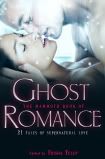
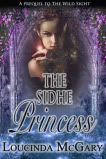
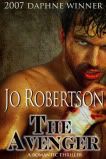
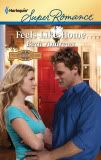
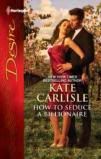

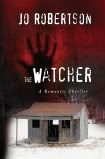


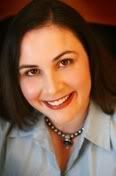











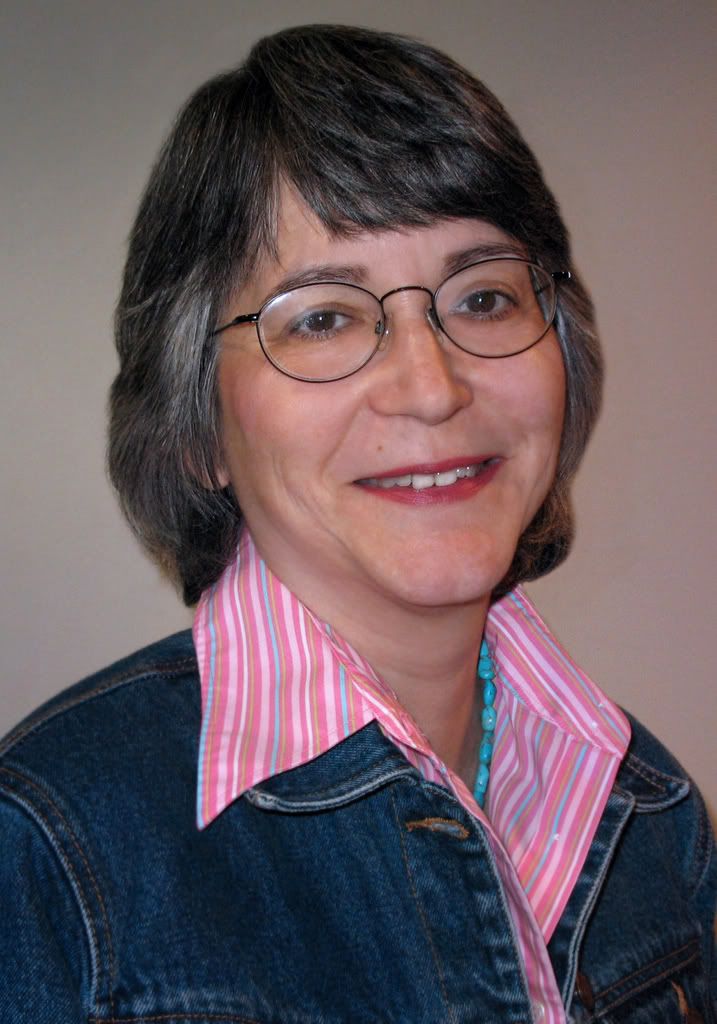




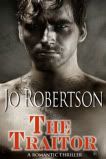




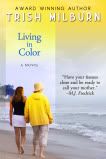
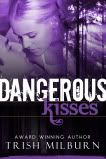









































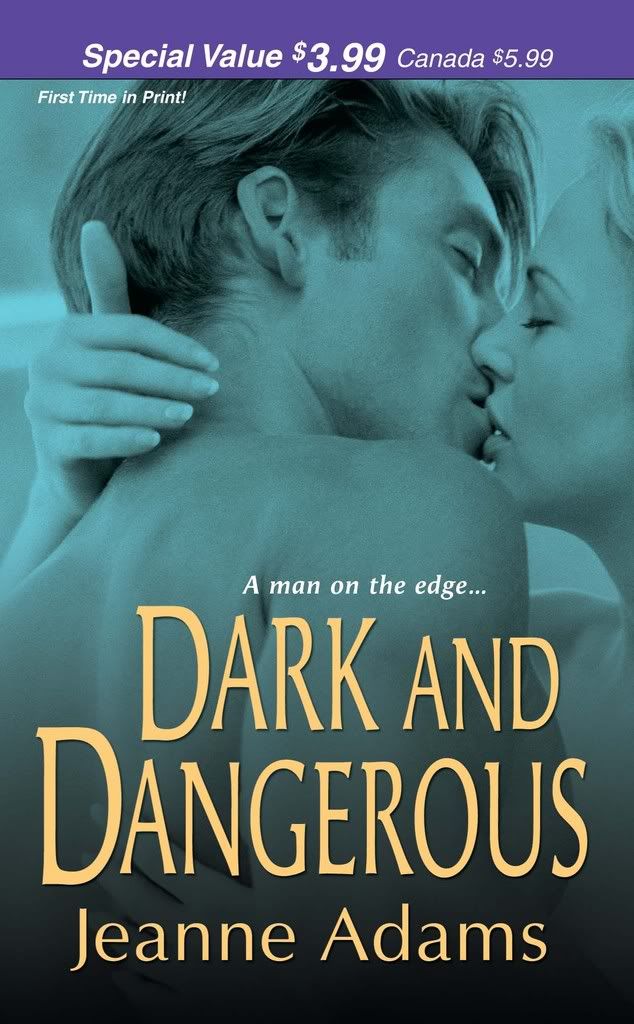



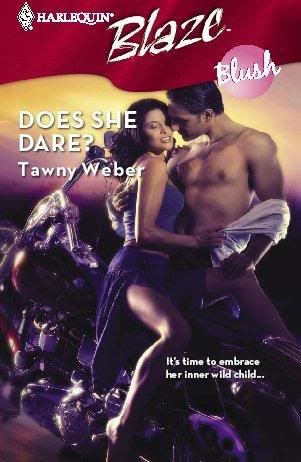





95 comments:
Mine again?
Hey, Lynz, the chook comes back! Hey now, hey, now, the chook comes back!
Hmm, it's his party and he'll crow if he wants to?
Valerie, welcome to the lair! What an interesting article! I look forward to reading your RWR piece. I live in Australia which means it generally takes about six months to turn up (only a slighty exaggeration!).
Aside from not writing to your strengths, is there anything else you consistently see in problem manuscripts? For example, I judge a lot of contests and something I see a lot is a good, saleable premise and then the writer getting scared of the premise and pulling their punches. So what should be a rip-roaring read becomes bland and very white bread. I'm always sad when that happens!
Hey Lynz, congrats on teh rooster nabbing ;-)
Valerie, thank you so much for visiting us here in the lair. I can't wait to hear your advice and words of writing wisdom. I love Anna's question. To add to it:
When a writer finally discovers their strength, what makes their work stand out -how do they write to it without becoming repetitive?
Awesome, two days in a row! I swear I'll stop monopolizing him after today, but until then I'm looking forward to the third installment of The GR and the Messy Bedroom - now in Technicolour!
Anyway, back to the task at hand. Welcome, Valerie! You know, when I was younger, I always used to wonder why my grandmother wouldn't grow her hair any longer. I thought it was such a pretty colour of silver! I wanted her to wear it the way you wear yours, but she just wouldn't give in, just because said style wouldn't look good on her. What a spoilsport! (Yes, I was annoying as a child. Very, very annoying.)
It's funny that I've never seen it this way before, but reading what you wrote made me realize just how similar growing as an author is to growing up. Eventually you get to the point where you're comfortable enough with yourself that other peoples' opinions and standards start to matter less, but before that you've got to get through the years of thinking that everyone else has all the answers.
I love Anna's question, and Tawny's too. You guyyyyys, stop taking all the cool questions! Here's mine:
As an editor, do you prefer something with an original plot but flawed writing, or something with an overused plot but brilliant execution? Curious romance readers want to know! (Well, maybe just reader, but it sounds better with an "s" at the end.)
Hi Valerie, and welcome!
It's an honor to have you with us.
I'm interested in your take on how a writer goes about figuring out what, precisely, her strengths are.
When an unpubbed writer enters a lot of contests, she gets a little jaded. You learn to look at the numbers and the comments (or NOT look at the comments for some judges)and figure out WHICH contests syou do well in, what LENGTH contest, what CATEGORY of the contest to enter, yadda yadda yadda. And you get feedback. Some of it good, some of it WAY off base.
How do you sift the wheat from the chaff? How do you learn what your strengths are as a writer, so you know what to focus upon? How do you know what to keep and what to toss out?
I've seen a number of manuscripts more than once, in contests. I've seen one early on, when it had technical flaws, and yet it had some kind of electricity that was almost tangible. Something between the characters, or a brilliant and unusual voice....And then...I've seen it, perhaps the following year, and it was washed out. Watered down. It might be free of technical flaws by then, but it's lost its spark. It's just one of a dozen others in the pack of entries. No zing. I know that the writer has fallen prey to the blanding-out that happens from trying to please too many people and fit the center of the bell curve. And I think it's a shame.
But I don't know how to help that writer, and it makes me wonder if I know my owns strengths, or if I'm making the same mistakes and watering down the zing in my own, to get audience in front of editors and agents by means of contest finals.
How do you learn to see your strengths and capitalize upon them?
Valerie, welcome to the lair. Lovely to have you here. Tawny, thanks for bringing Valerie along!
It's a coincidence you should be discussing working to your strengths as a writer, because I was just chatting about that here yesterday when looking at what books have influenced writers. It's fascinating to see the same strengths in the authors' work that they see in their favourite authors. Isn't there some saying that you see the same qualities in others that you have yourself?
And wow, isn't it wonderful to have the opportunity to focus on the good, rather than the bad, sometimes? I'm looking forward to reading your article.
Lynz, you got Sven AND the rooster. Party time at your house!
Congrats Lynz have fun with him
Great post Valerie sounds like you have an amazing job being able to read all of the stories that are sent to you and the help you give to the authors
Have Fun
Helen
Hi Anna--
I've worked with several Australian authors -- feel like I have a special Aussie connection!
The number one problem I see is lack of sustained emotional conflict. In aspiring writers a big issue is not targeting the market.
I agree on the great premise that goes nowhere. Sometimes it's the clever idea that works for an opening but where to go from there? And yes, pulling punches -- playing it safe. You wouldn't believe how many writers say to me "but I didn't think I could do that."
Hi Tawny,
Thanks so much for having me here today!
What makes work stand out? Voice, story and marketability. Pretty basic, but I think most editors are thinking that as they approach a manuscript. I always suggest aspiring authors do the editor's homework for them. Present the material in a way that makes the editor see the concept immediately. And if it's high concept, that's even better.
Interesting question about strengths becoming repetitive. I usually think of strengths as falling within the fundamentals like plotting, character, dialogue, etc. So a passion for dialogue, for example, will enhance any work. If a strength seems more specific, that could run its course -- oh, say, creating great vampires -- maybe look a little deeper. What is the underlying strength that is really at work.
Also, repetition may not always be a bad thing! Writers often go back to similar themes, settings, characters, etc. Readers love the familiarity of a writer's style and preoccupations. It's what they come back for time after time.
Hi Lynz,
Long silver hair is the greatest --you can stick it in a ponytail and you never get "roots"!
You are so right that growing as an author is like growing up -- teen rebellion and all. All the learning about writing, all the rules, all the ways you're "supposed" to do it can become restrictive rather than helpful. You need to break free and find your own identity.
Great question -- flawed yet original versus overused plot but brilliant execution. Definitely flawed but original. Hands down. The exception is a fabulous voice that can breathe new life into the tried and true story. Original doesn't always have to be earth shatteringly different. A subtle twist on a classic plot can also work.
The reality of the market today is that editors -- as much as they'd love to -- often don't have the time to nurture that diamond in the rough. To be really successful I feel you need to know the genre you write in at a gut level -- that gives you the freedom to be unique yet still meet publisher's requirements. All editors will work with an author who is close to the mark. It doesn't need to be perfect.
Hi Valerie!
It took me years to figure it out--my strength is in my writing voice.
The first six years of my writing life were spent learning the craft of writing. I had a few CP's, but they also tended to dilute ME out of the story while fixing craft issues.
In the last two years, I found that I was writing in the wrong genre. I switched to writing middle grade novels, which reflected my style and voice. Now that I've found my voice, I'm experimenting with other genres again.
Whether or not I sell is a crapshoot, but I'm enjoying writing now more than I ever have. I've learned to trust my gut and not to rely on CP's.
Beta readers are another story--they catch the stupid stuff without trying to put their spin on it!
Hi Christine,
Thanks for your top ten list yesterday!
That quote about others seeing us may be Robbie Burns "O wad some Pow'r the giftie gie us/To see ourselves as others see us."
And yes, I think you're right that we're drawn to authors who have our own strengths and passions -- even if it's at a subconscious level. It's a great way for a writer to figure out her own strengths
Hi Helen,
I can't think of a better job! I love writers and I love reading. I have to pinch myself sometimes. It seems too good to be true.
Welcome Valerie! It's great to have you in the Lair. And sharing such valuable advice with us.
I've been lucky enough to have had several H/S editors share my strengths with me. It's always encouraging to know one actually has some! LOL.
The hardest thing to elicit though is a clear definition of the areas that need to be improved to enable one to make that final leap. More, how to rework those areas effectively.
For those of us who are 'nearly there', I think it's the biggest source of frustration. We're so close and we feel that all we need is that 'little something' (other than luck and a fair wind *g*) to sell. If someone could just say 'fix this' we'd do it!
Do you have any suggestions for us 'Almost pubbeds' for how to find that missing ingredient or at least how to find out what to fix?
Hi Cassondra,
I must admit I have mixed feelings about contests. They're great for the chance of making an in-house connection with an editor and wins can help promote your work. Too, contest feedback can be helpful at a certain stage in your career. But contests usually focus on details and only a few chapters. An editor approaches a manuscript from a big-picture perspective. Is the story solid. Is the conflict sustained, etc. I personally don't sweat the details. If the substantive elements are there, the rest can be fixed.
In contests writers can get tunnel vision, focusing too much on all those details. As you say, too many suggestions can be taken on board and the initial spark of a work is lost. The manuscript becomes overworked. In contests it's best to only consider comments that come from more than one judge.
I suspect writers can get caught up in writing for contests instead of writing to sell. Test the waters through contests but then start writing directly for publishers --bypass the contests altogether. Make editors your first audience instead of contest judges.
I think the fewer people who see a work, the better. Find a good critique partner. In the RWR article author Lynn Cosby suggested a partner whose strengths balance your weaknesses. As I mentioned in my post, writers need to learn to trust themselves. Ultimately,the writer is the best judge of her work!
In What Makes You Strong Makes You Sell authors talk about how they found their strengths. One way is to pay attention to consistent feedback from editors, agents and other authors. For example, if you're constantly getting feedback about complex plots that aren't working, yet you're told how wonderfully emotional your characters are, then maybe your strength is in character-driven
stories rather than plot-driven stories.
Also pay attention to how you work. If you always start with dialogue or your characters seem to keep taking over the story,in spite of your well thought out plot, those are likely your strengths.
Hope this helps!
What a great article! I love hearing this; it's just not said often enough. Thank you, Valerie.
In answer to your question, I think that the author is usually the last to know what her writing strengths are! The biggest clue may be the parts that are the easiest to write, the stuff that flows out without any noticeable effort-- the parts she's ignoring while trying to hammer away at the "hard" stuff.
Hi Magolla --
Great you've found the right fit for your style and voice! That will go a long way toward getting published. Your enjoyment will come across in the writing -- so will your confidence. And as you say, you can carry that confidence into other genres, too.
Welcome to The Lair, Valerie!
Loved your post. Sound, direct and down to earth.
Finding my strengths? I think mine have evolved during the course of my writing. I think I do a good job of weaving setting with story, getting to the visceral part of the characters.
I'm a total pantser so it is difficult for me to self analyze.
As to contests. They are one tool. I agree totally that they are helpful especially early on...as long as you have balance to them.
A recent new member of my local RWA chapter talked about "changing what the judges had said" for the "next" contest. I emphasized to her to WRITE HER STORY. Don't tailor it to a specific set of parameters.
And amen sister about following "rules". That is the biggest detriment to beginning authors. If I'd worried about that I wouldn't have three completed Roman historicals that have done well in many areas.
Speaking of which, Demetrius has offered you unlimited shield sledding for the day :-)
How delightful to have you visit the Lair, Valerie. Thanks for the uplifting and encouraging words for aspiring writers.
I just finished reading your article in RWR and highly recommend it.
Hi Anna,
It'w wonderful -- and inspiring!-- to be here.
You asked for suggestions for 'Almost pubbeds' on finding that missing ingredient or how to find out what to fix?
One suggestion is looking for what the source might be for a problem. For example, say you're told the pacing is off. Instead of trying to fix the pacing head on, look at what is causing the pacing issue. Usually it's a conflict problem. Kind of like looking for the cause rather than addressing the symptoms.
I'm wondering how close almost published is to almost published! If editors and agents are giving positive feedback yet still saying no it could be something more than that "little something." For example, in What Makes You Strong Makes You Sell, author Gemma Halliday describes how she was getting close but no offers until she swtched her thinking from writing to sell to writing what was fun and natural for her. Fit had been the missing ingredient for her.
Thank you Jo!
I really enjoyed the article in the RWR. I'm about halfway through my first MS and I definitely know the parts I had the most fun writing. Need to go back to those and figure out what worked. Thanks!
Hi Joan,
Thanks for sharing how your strengths evolved.
Do you mind me asking if you have advice for aspiring writers who are pansters?
Part of finding your strength as an author is, I believe, about finding how you work best -- and often it's pantser. As an editor, I see aspiring pantsers fall into traps because they're allowing the story to evolve as they write. Often the suggested revisions become overwhelming. I don't want to push outlines when they're not inclined. Any suggestions?
Being a pantser does NOT mean...for me anyway...not knowing the story/characters etc. I know who my H/H are....their conflict...their plot and what they need to do (i.e. gain redemption etc)and how it will end. The joy comes in finding out how THEY want to get through it.
But detailed outlines or color coded boards (sorry Tawny)...makes my eyes glaze over.
That said, I do sometimes draw out a timeline...insert those key parts I know, and fill in the rest with "stuff happens" :-)
I've tried to do the detailed, extensive organization of the story, character sheets etc. but...it becomes a very adynamic process for me. I spend more time staring at the computer and less time getting my characters through their ordeal to the HEA.
Plus I enjoy the surprises. I was once writing a scene where the H/H were "talking". Before I knew it, they were "exploring each others options" shall we say? :-)
Three pages later I looked at that and thought "Whoa, didn't see that coming". It was good for the story, good for the H/H :-)
Thanks, Writergirl!
Misty Evans has a good piece of advice in the article -- that your strengths -- aka the fun bits! --will help you succeed no matter what weakness you face. So hold tight to the fun you're having. It's a touchstone.
Good luck with your manuscript!!!
Welcome to the Lair, Valerie - I'm loving readings your excellent answers to some very good questions.
I know my best writing occurs when I'm loving the story and deep in my world. As a pantser though - I have problems sometimes getting the magic to click in. One of your answers "up the conflict" is probably the root of my difficulty. I need to write that on the computer (grin).
I've also discovered that characters are key to selling. What qualities set characters apart in your opinion?
Thanks, Joan, for the insights into how you work. That really helps!
Hi Donna,
You asked what qualities set characters apart in my opinion. The best characters don't even seem like characters. They come alive. I can see them, hear them. I don't even need to know much about what they look like. I can just imagine it by how they are in the world the author has created.
This may seem trivial, but the character's name is also important. If the name seems contrived or odd it can pull me out of a story. The right name can add to a character's realness.
Please let me know if you're an aspiring writer interested in the critique gveaway. The critique is redeemable at any time -- so even if you aren't ready to submit right away please be sure to drop a comment!
LOL Valerie - From someone who must change her characters names 3 or 4 times in the course of the WIP, I agree character names are important - just wish I knew how to latch onto them from the getgo!
I'm loving this blog. The timing of this couldn't be better for this aspiring writer either.
I've been working at this only part time for a little over two years but recently managed to dive in for real. I'm having to learn what works for me and just this week had a major revelation. I CAN'T PANTS. LOL!
I realize I should have known this before and everyone I've told says, "I could have told you that." Very annoying that *I* was the last to know. *sigh*
I think my strength lies in dialogue and character driven stories. It's all about emotion and angst with a good dash of sarcasm thrown in.
You mention high concept. Unfortunately, that is NOT one of my strengths. Do you have some advice for those of us who are high concept challenged? Is there a way to make a story really pop without it? (I sure hope so.)
I'm interested in the crit giveaway. :-)
Margaret
I'm not a writer, but I so enjoy
reading the guidance offered to
writers as they seek a place in
the writing world. Not just a
place, but their own place in the
writer's universe!
Thanks for visiting with us in the Lair today!
Pat Cochran
Valerie, welcome to the Lair! I really enjoyed your post, and the comments here in the back room are invaluable. Seriously, I'm taking notes and I've also emailed some friends telling them to come by and read your great advice. Thanks so much!
When I'm stuck in a scene and not sure where to go, I always start a dialogue back and forth between the characters. Just dialogue, no tags or descriptions. Just their words. It might take a few pages of them talking stuff out, but pretty soon, I've solved whatever problem I was having with the scene.
Now don't laugh, but I've always thought that writing out all that bare-bones dialogue without adding tag lines and description and flourishes and inner monologues as I went along--was cheating! Now I'm going to call it my strength! Thank you!! :-)
I'm going to go read your RWR article now.
Lynz, congrats on snagging the GR! Good luck with the messy bedroom!
Hi, Valerie!
What an interesting topic for your blog! Thanks for sharing your wisdom and insight.
I agree with another person who posted earlier--how the heck is a writer supposed to figure out what her strengths are?
Sigh. I thought I knew what my strengths were. Then other people read my stuff and...poof. What I thought was strong simply wasn't.
Maybe it's because my understanding has changed--no longer does "writing strength" mean the stuff I like to write best, or stuff that made sense to me when I wrote it and re-read it.
Now, I believe that writing strength means the stuff that other people get--and I never, but never, know when or if that is going to happen!
Can you help me get some clarity here? I would be so grateful.
Thanks!
Saralee
Oh wow, Valerie, these are priceless insights :-) Thanks so much for sharing your wisdom with us. I'm loving the questions -and the answers, they've really got me thinking.
:X Well I have no questions... but this is a great post- thanks for visiting with us, Valerie!
Congratulations on the GR, Lynz
Hi Valerie and Banditas!
I've enjoyed the honor of knowing Valerie since, well, since we both had different hair colors. :) She has always been both supportive and challenging, and I learned all I know about my own strengths from her. Strengths being ever so much more that "craft" strengths.
So, Val, it's fabulous to see you here, and I publically thank you. You are the bomb!
Light,
Nancy Haddock
Valerie, this is amazing advice. Thank you so much for swinging by the lair today. Here, have an Aussie margarita with a koala-shaped umbrella!
Hi Terrio,
So glad you're enjoying the blog!
You wanted to know how to make a story pop if it isn't high concept. Did you mean in terms of pitching or querying your story?
Editors love high concept because what will sell the story is right in the premise. You can turn your manuscript into high concept by knowing what is saleable in your work. Present you work to an editor or agent in a way that makes them instantly see the market appeal of the story and how they would sell it. Here's some ideas how--
Make sure YOU know why a reader will pick your book off the shelf.
Know the essential core of your story. For example, it's a story of transformation, of lovers reunited, of rivalry, etc.
Think in terms of jacket copy, which is usually written around the story's hook -- it's selling point.
If you're thinking more in terms of the story itself, knowing the above -- the hook, the core theme, why readers will buy your book -- can help focus the work. A story can also feel stronger if H/H conflicts, motivations, goals etc. are clearly defined and clearly in opposition rather than vague, general or overly subtle. This makes for a clearer, sharper story
that can immediately hook editors -- and readers.
Hope this helps answer your question!
Kate -- that's so funny. Here you thought you were cheating and all along you were just being strong. Bet you didn't think you had a spin doctor in the lair!
Thanks for your kind words. I've gotten so much out of being here!
I'm with you, Pat. I'm not a writer either but I love to read about the writing process and how writers spin their magic. I have to admit I'm in awe of writers!
Great post, Valerie!
I loved your article in RWR. I highligted and underlined alot of it.
I am loving all the tips you're sharing today. This is definitely one I'll print and hang next to my computer.
Thanks,
Di
Welcome to the lair, Valerie! Wonderful post!!
I'm pretty sure I know what my strengths are but I'm wondering what I can do to use those strengths to get published in a different sub-genre. I write for Superromance (and I LOVE writing for Supers *g*) but I also adore writing YA :-)
Any advice on breaking into a new sub-genre?
Make sure YOU know why a reader will pick your book off the shelf.
Know the essential core of your story. For example, it's a story of transformation, of lovers reunited, of rivalry, etc.
Oh wow- this is so powerful. Light bulbs just flashed. You know, the neon kind with glitter *g* I've never been able to clue into high concept or "big", but this really helps.
Thanks, Valerie
Hi Nancy,
Thank you so much for your wonderful words! I want to tell everyone out there that knowing you has strengthened me beyond measure.
I'm sure all of you can attest to the incredible friendships that flourish among writers -- even writers and editors!
And you are so right, Nancy, about strengths coming from the writer as much as the writing. I quoted you in the article on that great insight. Strengths you noted were persistence, risk taking, belief in oneself and the value of one's work. Wendy Corsi Staub mentioned developing a pragmatic, less emotional approach to getting published. The rhino hide that can come in mighty handy!
Thank you, Limecello!
Hi Claudia,
I was taken by your remark that strengths can be "the stuff that flows out without any noticeable effort-- the parts she's ignoring while trying to hammer away at the "hard" stuff." So true.
I also see authors hammering away at what they think editors want, thinking that's the way to sell. The best way to sell is focusing on that effortless flow.
I'm sure all of you can attest to the incredible friendships that flourish among writers -- even writers and editors!
Oh definitely!!! The friendships with the Bandits have been such a blessing. My CP, Beth Andrews, is my BFF for sure. And I'll be the first to say that my editor is one of the greatest gals in the world *g*
I think its all these connections that really help us in writing. They sustain us in the good and bad, they inspire and push us and they make us feel at home in this very topsy-turvy business.
Hi, Valerie--thanks so much for swinging by the lair today! You're full of wonderful information!
I'm with Cassondra in that I think pre-pubbed writers can edit the magic right out of their work, creating something more technically correct but absolutely vanilla. I personally *like* to see outside the box rule breakers make it into print.
It's so hard to know, though, when you're following your heart & when you're just being stubborn. :-) Part of my process for figuring out which criticism to accept & which to blow off has come down to one simple question: Will this make my story different, or will it make my story MORE? I don't necessarily want my story to be different, but if a criticism can help make my story more, I'm all over it.
Hi Val and Bandits!
Wonderful article in the RWR, Val, and great words of advice here today. I wish I'd had your advice when I started writing and trying to find my way through all the so-called rules out there. You boil it down so nicely, and your advice makes sense, which so much of it floating around in the writing world does not!
Even though I'm pubbed, I've just realized that research is one of my strengths. I'm glad the hard work of creating believable characters, plots and getting the details right comes through in my writing.
Thanks, Val, for your incredible advice and common sense approach to success!
Misty
Hi Saralee,
I wondered how long you've been writing? To go back to Lynz Pickles comment, growing as an author is like growing from childhood to maturity. Writing has a long learning curve, and perhaps you haven't fully come into your own yet as an author. Maybe the strengths are still emerging or maybe you just need to hone your craft a little more so that those strengths shine through.
I mentioned earlier about being selective about who you show your work to. Sometimes a thoughtless remark or harsh criticism can be defeating-- especially early on in your career. Find a caring, supportive critique group or partner who can nourture the strengths I know you have. Ask them to pinpoint the strengths in your work.
In my post I mentioned how your strengths are the parts of writing you love the most. I'm sure you know in your heart what you do best. Try not to let setbacks fill you with doubts -- as hard as that might be.
You came to writing with a purpose, something to say, a passion. Remind yourself of that every day -- and that you are unique. Your voice is unique. Your take on the genre is unique. Trust and belief in yourself will help you develop the instincts that allow you to weigh criticism and have insight into your own work.
Hope this is somewhat helpful. There are other how-to tidbits scattered throughout the comments -- like looking at what attracts you to favorite authors as a clue to your own strengths. Look at your approach to writing. Do you start with dialogue and then go back to fill in the narrative? Love to create elaborate complex plot outlines? Love to imagine the world of your novel? Have characters pushing you aside to tell their own story? All are clues to strengths.
Hi Anna --
Mmmm! Thanks for the Aussie margarita! I have the koala umbrella tucked over my ear.
Thank you, Valerie. Your comments give me courage. I think I know my writing strengths, but then I begin to doubt myself because of critiques or contests, as you mentioned. You've made me determined to stay true to myself.
Hi DiR
I'm so glad to hear you got so much out of the article. And the comments today are great, aren't they? The comments are always great in the lair!
Valerie - Thank you for the great response. I've been so worried about how to *sell* my story when I know it's all about the characters and what they go through, but no high concept like Indiana Jones meets Mary Poppins. (Now that would be interesting...I'm guessing.)
Your advice is perfect and something I never thought of. Mine is a story of overcoming. Overcoming fears, overcoming grief, overcoming old hurts. (I'll make that sound better when the time comes.)
Now I know how to focus in. THANK YOU!!!
Hi Beth,
You asked if I had any advice on breaking into a new sub-genre. If you love writing YAs why not cross the hall at Harlequin and check out their new YA line. New line=great opportunity. I remember being in editorial meetings when editors starting new lines where frantically asking us who we knew that might have a manuscript! So why not express your interest to your editor?
I think an editor might get excited about a Superromance mini-series or tie-in with the new teen line. The mother's story in the Super, the teen's perspective in the teen line.
Aside from golden opportunities :)...
In my interview with Wendy Corsi Staub I asked how she uses her strengths to cross genres. She said,"I like to take an ordinary character and an every day backdrop—a mom in suburbia, for example—and insert them into a plot in which extraordinary things happen. I happen to be an ordinary suburban mom in my every day life, so creating these types of characters is second nature to me not just in my adult suspense novels by in the women’s romantic fiction, chick lit, and YA paranormal I write as well."
This illustrates how portable a core strength can be.
In general, I suspect a writer who knows her strengths and is well along in her career, can make transitions that support her career. I see problems in genre hopping that can disrupt one's reader base.
I also see writers who want to make the transition from epublishing to print and have trouble adjusting to the different pace of print publishing, the sometimes narrower parameters and tougher standards.
Valerie,
Thanks for this advice:)...I've been told several times I have a strong voice, but at times, I don't know what on earth they're hearing. I understand about voice,but I guess because I just write it as I hear it, I'm never sure what the sound is:) In reading your comments, it made me decide to keep on doing what I'm doing. (I'd begun to have doubts, imagaine that... LOL, a writer with doubts! HA!)
And to Anna, a big wave:) My hubby's an Aussie and I lived there for several years:)It's always nice to meet someone on here from downunder.
Very inspirational! Thank you!!
*trying to think of a cool question this late in the day*
How do write to your instincts and voice but still keep the golden ring in mind? (I still see advice about remembering your market and not giving the editors a reason to reject you by writing about the obvious rejection don't's like: married men and Lucifer--you know, the obvious no-nos. I mean, what if you do have a hero that's Lucifer--and your voice really POPS when you write about him?)
I speak hypothetically of course. I write completely white bread heroes.
Hi Valerie
I woke up this morning an aspiring author. After reading this I'm a re-inspired author. Love the article in RWR, and the great connections offered to the commenters here.
Nancy
Hi Tawny,
Thanks again for inviting me. This has been so much fun!
High concept seems so prevelant these days. High concept is an easier sell all the way up the line -- author to agent, agent to editor, editor to publisher, publisher to reader. A high concept presentation can smooth the way for any solid, marketable manuscript.
Hi Susan,
Love your question: Will this make my story different, or will it make my story MORE?
As an editor I always tell writers to take what works in a critique and ignore the rest. Or look at what may be underlying the comments rather than the specific suggestions. I try to be sensitive to the story the author wants to write, not what I think she should be writing. But in my enthusiasm I'm sure I've crossed the line! Your simple question is such a great way for an author to get back to her initial vision for the story.
Thank you!
Hi Loretta! Is it your first visit to the Bandits? Welcome! There's a couple of Aussies who hang out here - there's me and the fabulous Miss Wells. We also have a Brit, Anna Sugden. Quite a multicultural mix! Fantastic you lived here - I hope you enjoyed it.
I feel like Valerie was writing this just for me, she described what I've been going through so accurately.
I've done the contest route and, when I finaled in the first several contests I entered, mistakenly thought I could write. And then I tried to revise my stories, closely following all the judges' suggestions. Almost instantly, I stopped finaling.
I've been dependent on critique partners, but I've learned that every critique partner has her own strengths and weaknesses, and, in the end, I have to make the decisions.
Dialogue seems to be one of my strengths, and whenever I add dialogue, the pace picks up.
My weaknesses include over-explaining things and, the old faithfuls, info dumping and backstory. I'm better than I used to be, but I'm still learning.
I have another -- well, I don't know if you'd call it a "weakness." More of a glitch. My husband is English and I lived in the London area for seven years. Apparently a lot of my slang usage is more English than American, and I use a lot of words my critique partners are unfamiliar with. Since I don't realize that while I'm writing these words, it could be a problem.
I also have a problem with over-thinking plots.
What I do have is a great marketing platform, and my voice seems to be distinctive. Now, if only I could get the books right!
Hi Misty,
Thank goodness you made it through the maze of rules and gave the world your amazing voice!
Research is a great strength to have! As you say it brings depth and nuance to character, a realism to plot.
And Misty you are the queen of copy writing. You ended your comment by calling my advice the "common sense approach to success!" I should use it on my website!
Hi Carolyn,
Yes, absolutely stay true to yourself. It does take courage and I applaud you!
In the article Nancy Haddock encourages writers to make strengths your mantra and to post your strengths on a card in your work area to always remind you of what you do best.
And I hope you have the special connections to other writers that Tawny and I both mentioned -- writers who remind you of everything wonderful about your work on those days you may forget!Why not have a whole team giving you courage!!
Hi Terrio,
I'm so glad the comments helped!
I'd love to see Indiana Jones meets Mary Poppins. Too funny!
Hi Loretta,
When you said about others hearing your voice --"I don't know what on earth they're hearing because I just write it as I hear it, I'm never sure what the sound is" -- I thought wow! That's the surest sign you're writing from an authentic place. That voice is part of you. Awesome!
Hi Nancy Naigle,
What a lovely comment. I hope you continue to be inspired!
Hi, Valerie !
I've already read the article in RWR and it really resonated with me. I've so much time agonizing over the things that I don't do all that well! I never really thought about giving equal time to the things that people love about my manuscripts.
They will tell you I have been a definite contest slut and have received lots of feedback on my two finished manuscripts and my current WIP. I spent much of my time worrying about what the judges didn't like and now that I go back and read what they DID like I see the pattern.
It is funny that Christine talked about a writer's favorite books indicating what her own style might be. I went back over my top ten list and I realize they are all very much what I like to write.
With each book I have stopped pulling my punches more and more (thanks La Campbell) and I think maybe I get what it is I do well - dialogue and love scenes, according to the consensus, LOL !! I mean I even had a love scene place first in the Between the Sheets contest over some REALLY hot contemporary and paranormal writers. And we all know how HOT AND ROWDY they can be!
Still once a writer sort of knows her strengths, or at least has an idea, how does she incorporate those strengths in to the other components of her work that she doesn't do quite as well?
Thanks for taking the time to be here today. Of course any day in the Lair is a blast!
Lynz !!
You nabbed the GR again!! Way to go! Watch out. If you show him too good a time he will NEVER leave!
Hi Ms Hellion
I say if your voice really pops when Lucifer is your hero -- hypothetically speaking of course!-- write it. You may find that pushing the envelope narrows the publishers who'll be open to your work. But epublishing especially is great for testing limits.
Another option is to push the boundaries to the limit of what would be acceptable for mainstream publishers. Look at how much you'd have to reel youreslf in and still pop. Sometimes the writing strength isn't, say, Lucifer, but what Lucifer represents. Your srength may be something much broader than one element.
I remember years ago an author said to me be careful what you first publish because that will be expected from you for your next book and the one after that. So if you can't imagine yourself reined in, don't do it. It will never be a comfortable fit.
One other thing to consider is the strength of the story and writing overall. If a manuscript is different AND filled with technical flaws, publishers may be reluctant to take it on -- as much beause it requires too much work as the subject matter itself. Give them a groundbreaking story beautifully crafted and you might find yourself in a bidding war instead!
Hi Valerie:
Great blog! I've garnered lots of wonderful advice from everyone. Right now, I'm taking an on-line workshop on plotting. The category I'm writing in isn't in vogue right now but I'm sticking with it.
Between following all the "rules" and processing the "constructive criticism", :-) there are times (lots of times!) I find myself doubting my ability to maintain my "voice" in the story.
Thanks everyone for your input. It's been wondefully inspirational.
Lynz, you're on a rooster roll!
Valerie, welcome! This is all fabulous advice.
I think trusting one's instincts becomes harder after a few rejections hit. Or, as Cassondra points out, after a few contest results come in.
Some people change everything anyone criticizes, but I think a person could go nuts doing that. One person's trash is another's treasure, to paraphrase.
I'm a solid plotter, usually. Beyond that, I'm not sure what my strengths are. I just know what I like and that every ms. has something that draws me to it. I'll tweak those things, but I won't change their bedrock, not for a critique, because the project then wouldn't feel like it was mine.
If you love writing YAs why not cross the hall at Harlequin and check out their new YA line. New line=great opportunity. I remember being in editorial meetings when editors starting new lines where frantically asking us who we knew that might have a manuscript! So why not express your interest to your editor?
I've spoken with my editor about my YA writing so hopefully that means I'm heading in the right direction *g*
Love the insight from Wendy, too. Thanks so much, Valerie!
Oh definitely!!! The friendships with the Bandits have been such a blessing. My CP, Beth Andrews, is my BFF for sure.
I'll second what Tawny said! I've made the best friends I've ever had since I started writing :-)
Hi Louisa,
Enjoyed your comments!
How does a writer incorporate her strengths with the components that she doesn't do quite as well?
The million dollar question!
The reality is every writer has some weakness or other and the weakness have to be addressed. But if you've chosen a genre that suits your strengths, the weaknesses won't seem so obvious. If the strengths are there and the weaknesses are minimal, editors will work with you to fix a few rough patches.
Interesting that the contest judges were all responding to the same elements they liked -- showing your strengths are loud and clear.
It's sometimes a good idea to put attention on strengths to make sure they're as strong as they can be. As you said, give equal time to the parts you love. Imagine your strengths even stronger. What editor could refuse!
I'm an aspiring author, and I'm definitely interested in the critique.
Great post, Valerie. I just read your article in the RWR last night and couldn't believe my luck when I saw you here today.
Feedback can be so subjective. To date, I've entered in - and won - only one chapter contest, though my scores were something like 80 points apart. Hello, discrepancy judging. ;) I also entered the GH, and my scores there were in the middle.
Regarding favorite authors: one of my CPs mentioned how one of my favorites "sounds" a lot like me, which was a treasured compliment, that's for sure.
Lots of wonderful info here! Thanks!
Hi Becke--
Loved your comments. You have so much insight into yourself as a writer. That's valuable knowledge!
Hi Pink Peony,
Good for you sticking with a genre you love even though it's not "in" right now. Trends come and go and your genre may see a return to favor. Even if a genre isn't the hottest, there are still fans out there and publishers wanting to meet the market need, even if it's a modest one.
You may also find that sticking to the genre you love has it's advantages. Often writers jump around and never really master any one genre. You know what you want to write and you'll stay focused until your craft and your passion come together in a solid manuscript.
Enjoy your plotting workshop!
Hello Banditas! Great choice of guest.
Hello Valerie,
I'm on a similar boat as the Aussie gals here. I'm in Luxembourg and the RWR takes a while to slide under my door.
I'm very much looking forward to reading your article. I'll have to bribe the postman to get it here faster. :)
Thank you for the excellent keeper blog.
Hi Nancy,
You said about your work that "I won't change their bedrock, not for a critique, because the project then wouldn't feel like it was mine." That's so true and so valuable.
In the RWR article Misty Evans describes how she turned down a publishing contract because the revisions would have meant destroying that bedrock -- taking away what was unique about her writing.
Hi Carolynn,
It says something that you won a contest your first time out the gate. Congratulations!
What a coincidence that you read the article last night and here I am this morning. It must feel like I'm following you:)
Hi Anastasia,
When the postman finally arrives with your RWR, please feel free to email me if you have questions about your strengths. Hope you enjoy the article as much as you've enjoyed everyone's great comments!
Ack, Lynz! You must have drugged Foanna and stuck her in a closet. *g*
Valerie, welcome to the Lair! We are so happy to have you with us. I'll admit that I have not heard much about writing coaches. It's great that you've been able to incorporate your editing experience in a new career that is obviously your passion.
As someone who has been "almost there" for eons now, I find your perspective quite refreshing. Several times I've gotten incredibly discouraged by the Long Wait. The Last Hurdle. The Good Rejection. These things should spur me on, but often I am bogged in the mire of dashed expectations and cannot pull myself out.
Until. There always comes a time when I stop writing. Just can't anymore. Then I get disgusted with myself, grow bored and get tired of obsessively reading the news or following rabbit trails on the internet. Then I'll start getting ideas. Characters pop into my head and won't leave. Soon, a story begins to form.
If I let it have its way with me, I usually have fresh, sparkling, fun writing flowing again in no time. I hope, someday, to build confidence that isn't undermined by the long, slow slog. I am a good writer and I have a unique voice. Some editor, someday, will love it and want to buy my books.
Until then...
Loretta, you totally pegged the "voice" thing. I think the writer is the last to know and CERTAINLY the last to hear it. I have no idea what my "voice" sounds like to others. All I know is, it's a consistent comment, so it must be true. *g*
Hi Anastasia! Great to see you here, my friend!
Valerie and ladies of the Romance Bandits,
Thank you for a great blog.
I have unusal question--a little off topic. Today, I read on another on blog which the editor adviced authors need to start marketing themselves atleast three years before they're published. I know a great, clean manuscript is foremost, but do publishers look at what an author has done as far as branding themselves and starting a firm reader base when making a decision to offer a contract?
Just curious.
Thank you again for all the great advice.
Autumn Jordon
2009 Golden Heart Finalist
www.autumnjordon.com
Hi Autumn,
Gosh,marketing three years before a writer's published. Personally I think the focus should be on getting a good manuscript, and landing an agent who shares your vision of your career. I think every editor and agent wants an author who is market savvy and is willing to be engaged in the promotion of her work. And great if you're promoting your first book prior to release. But getting a reader base long before one even has a book in print seems like putting the cart before the horse.
I think editors base the decision to buy on the manuscript in front of them. It can also help if they see you have multi-book potential --that you can build a reader base within their imprint.
Hi Caren,
I think writing coach was coined for the intro. I'm nothing as fancy as that. Just a plain old freelance editor!
I was reading your comments with baited breath thinking she's going to say and then I got published. I can feel how close you are just reading about it! That must be incredibly frustrating. But it just takes one editor, one telephone call and the wait is over.
Gosh, it's almost midnight. My pumpkin awaits!
I hope I got to everyone. If I missed you please drop by my website. All of you are welcome anytime. This has been such a great experience. Thank you so much for the warm welcome and terrific comments.
I thought three years was ridiculious too. I was like how could one do that?
Thanks, Valerie.
Autumn
Hi, Anna! :)
Thanks Valerie, I will!
Have a great wkend everyone!
Post a Comment